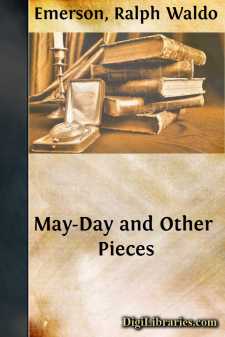Categories
- Antiques & Collectibles 13
- Architecture 36
- Art 48
- Bibles 22
- Biography & Autobiography 815
- Body, Mind & Spirit 144
- Business & Economics 28
- Children's Books 18
- Children's Fiction 14
- Computers 4
- Cooking 94
- Crafts & Hobbies 4
- Drama 346
- Education 58
- Family & Relationships 59
- Fiction 11835
- Games 19
- Gardening 17
- Health & Fitness 34
- History 1378
- House & Home 1
- Humor 147
- Juvenile Fiction 1873
- Juvenile Nonfiction 202
- Language Arts & Disciplines 89
- Law 16
- Literary Collections 686
- Literary Criticism 179
- Mathematics 13
- Medical 41
- Music 40
- Nature 180
- Non-Classifiable 1768
- Performing Arts 7
- Periodicals 1453
- Philosophy 65
- Photography 2
- Poetry 896
- Political Science 203
- Psychology 44
- Reference 154
- Religion 515
- Science 126
- Self-Help 85
- Social Science 83
- Sports & Recreation 34
- Study Aids 3
- Technology & Engineering 59
- Transportation 23
- Travel 463
- True Crime 29
Our website is made possible by displaying online advertisements to our visitors.
Please consider supporting us by disabling your ad blocker.
Representative Men
Categories:
Description:
Excerpt
I. USES OF GREAT MEN.
It is natural to believe in great men. If the companions of our childhood should turn out to be heroes, and their condition regal, it would not surprise us. All mythology opens with demigods, and the circumstance is high and poetic; that is, their genius is paramount. In the legends of the Gautama, the first men ate the earth, and found it deliciously sweet.
Nature seems to exist for the excellent. The world is upheld by the veracity of good men: they make the earth wholesome. They who lived with them found life glad and nutritious. Life is sweet and tolerable only in our belief in such society; and actually, or ideally, we manage to live with superiors. We call our children and our lands by their names. Their names are wrought into the verbs of language, their works and effigies are in our houses, and every circumstance of the day recalls an anecdote of them.
The search after the great is the dream of youth, and the most serious occupation of manhood. We travel into foreign parts to find his works,—if possible, to get a glimpse of him. But we are put off with fortune instead. You say, the English are practical; the Germans are hospitable; in Valencia, the climate is delicious; and in the hills of Sacramento there is gold for the gathering. Yes, but I do not travel to find comfortable, rich, and hospitable people, or clear sky, or ingots that cost too much. But if there were any magnet that would point to the countries and houses where are the persons who are intrinsically rich and powerful, I would sell all, and buy it, and put myself on the road to-day.
The race goes with us on their credit. The knowledge, that in the city is a man who invented the railroad, raises the credit of all the citizens. But enormous populations, if they be beggars, are disgusting, like moving cheese, like hills of ants, or of fleas—the more, the worse.
Our religion is the love and cherishing of these patrons. The gods of fable are the shining moments of great men. We run all our vessels into one mould. Our colossal theologies of Judaism, Christism, Buddhism, Mahometism, are the necessary and structural action of the human mind. The student of history is like a man going into a warehouse to buy cloths or carpets. He fancies he has a new article. If he go to the factory, he shall find that his new stuff still repeats the scrolls and rosettes which are found on the interior walls of the pyramids of Thebes. Our theism is the purification of the human mind. Man can paint, or make, or think nothing but man. He believes that the great material elements had their origin from his thought. And our philosophy finds one essence collected or distributed.
If now we proceed to inquire into the kinds of service we derive from others, let us be warned of the danger of modern studies, and begin low enough. We must not contend against love, or deny the substantial existence of other people. I know not what would happen to us. We have social strengths. Our affection toward others creates a sort of vantage or purchase which nothing will supply....









